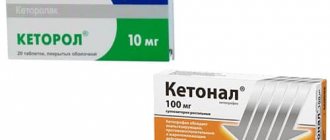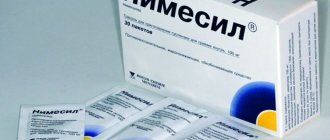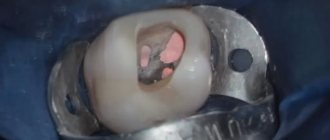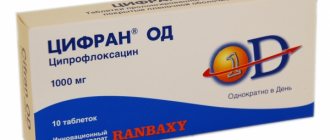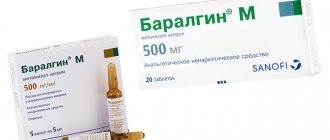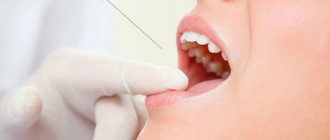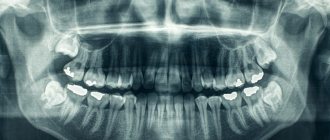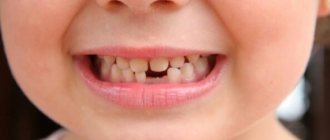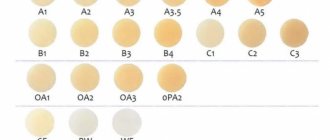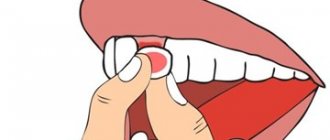Nimesil and Ketorol are medications that help get rid of inflammatory processes and intense pain. Both medications belong to the group of non-steroidal anti-inflammatory drugs. It is recommended to consult your doctor before choosing the appropriate option.
Nimesil and Ketorol are medications that help get rid of inflammatory processes and intense pain.
Differences
Ketorol is more often used as a pain reliever: its effectiveness against inflammation is lower than that of Nimesil, so doctors prescribe a more effective medicine. Nimesil can be used as a complex remedy; it helps well both with pain and with infectious processes accompanied by hyperthermia.
Various forms of release. Ketorol can be purchased in the form of tablets or solution for intramuscular injection. Nimesil is sold in powder form for the preparation of a solution for oral use.
Nimesil is less likely to cause adverse reactions. This is often taken into account when choosing a pain reliever.
Medicines have different principles of action. Ketorol inhibits the activity of type 1 and type 2 enzymes that synthesize prostaglandins. Such exposure, however, may negatively affect the functioning of the gastrointestinal tract. The second drug affects only the second type of enzymes; the analgesic effect becomes less pronounced.
Which is better: Ketanov or Nimesil?
If the active substance of Nimesil is nimesulide, then Ketanov is based on ketorolac (ketorol).
The drug Ketanov is presented in two pharmacological forms:
- ampoules for injection (containing 30 mg of ketorol);
- oral tablets (containing ketorolac tromethamine 10 mg).
As for Nimesil, it is available in the form of powder sachets (100 mg of nimesulide) for the preparation of a medicinal suspension.
Both drugs aim to block prostaglandin synthesis and have both anti-inflammatory and analgesic effects. However, in Ketanov, the analgesic properties prevail over the anti-inflammatory effect. In addition, the maximum concentration of the active substance Ketanov is observed after 45 minutes, while for Nimesil this figure is 2-3 times higher.
But if we compare the time of action of the drugs, then for Ketanov it is only 4-6 hours, and for Nimesil it is 6-12 hours . There are also some differences in drug metabolism and elimination.
Thus, the main route of metabolism of Ketanov is binding to glucuronic acid, after which 10% of the active substance is exported with feces, and 90% is excreted by the kidneys (2/3 unchanged).
Nimesil is excreted half by the kidneys, and the second part leaves the body with bile.
Indications
It is recommended to take Ketanov and Nimesil in the following cases:
- severe pain of various localization (dental, gynecological, urological, orthopedic);
- acute pain due to muscle and bone injuries;
- postoperative pain syndrome;
- renal and hepatic colic;
- cancer pain.
However, it should be emphasized that in all such pathological conditions, Ketanov can be taken for no more than 2 days. As for Nimesil, its maximum use is 14 days, with the possibility of extending this period on the recommendation of a doctor. Therefore, Nimesil is more effective in case of long-term therapy.
Pharmakinetic interactions
Often, during complex therapy of a particular pathological condition, the issue of drug compatibility becomes acute. It is immediately worth noting that Ketanov should be prescribed with caution to persons taking high doses of salicylates.
This drug will also reduce the effectiveness of warfarin.
Regarding Nimesil, you need to remember the following: the drug, when used simultaneously with anticoagulants and glucocorticosteroids, can provoke bleeding; in addition, the drug reduces the effect of diuretics and medications for high blood pressure.
In addition, people are often interested in: is it possible to combine drugs based on nimesulide (Nimesil, Nise) or their nurofic analogue Ibuprofen with antibiotics and what is the compatibility of Ketanov with Nimesil. Of course, it is optimal when all medications are prescribed by the attending physician, which will eliminate the possibility of a fatal mistake.
But in circumstances where it is not possible to seek the help of a specialist, it is important to remember that although NSAIDs combine well with antibiotics and help to comprehensively cope with ailments, they are not always compatible with each other. You should not give in to the temptation of trying to enhance the effect of one drug with another, and drink Nimesil at the same time as Ketanov.
Contraindications
Nimesil cannot be used for the treatment of intolerance to components, allergic reactions, inflammatory processes in the intestines, fever, viral pathologies, bronchial asthma, recurrent formation of polyps in the nasal cavities, gastric or duodenal ulcers, severe renal, hepatic or heart failure, any pathologies liver. Do not take during pregnancy or lactation. Children under 12 years of age should not be taken. Do not use for alcohol or drug addiction. Do not combine with other NSAIDs.
Ketorol cannot be treated if you have intolerance to the components, allergies, peptic ulcers of the duodenum and stomach, gastric bleeding, inflammatory processes in the intestines, hemophilia, bleeding disorders, cardiac, renal, liver failure, pathologies of the liver and kidneys in the active stage, after coronary artery bypass surgery, before and during surgery, during pregnancy, lactation, and childbirth. Do not use in children under 16 years of age. Do not combine with other NSAIDs containing acetylsalicylic acid.
Recovery immediately after surgery
In the first days after surgery, we recommend that our patients do not travel to another city if possible. Being close to the dentist, you will receive timely medical assistance if necessary.
So, you went home after dental implantation. You may feel slight weakness, numbness from the anesthesia, and minor discomfort in the surgical area. This condition will go away in 3-4 hours, so you do not need to take additional measures.
However, your body will need time to recover for the first 1-2 days. To make this process easy and unnoticeable for your usual lifestyle, we recommend adhering to the following rules:
- For the first day, limit yourself to rinsing your mouth only. The next day, you can brush your teeth with a brush and toothpaste, carefully avoiding the implant installation site so as not to damage the seam.
- Apply a cool compress to the outside of the implanted area. This should be done very carefully to avoid overcooling the nerve near the implant.
- For the first few days, you need to take antibiotics; painkillers are taken according to the condition if there is minor pain. It is also necessary to prevent mechanical impact on the implantation area
- Avoid physical activity after dental implantation, as this may cause adverse effects in the surgical area.
- Take care of your health so as not to get colds. Failure of the immune system and the syndromes that accompany it, such as coughing, sneezing and high fever, can provoke implant rejection.
Side effects of drugs Nimesil and Ketorol
Nimesil can rarely cause anemia, hemorrhage, and pancytopenia. Allergic reactions are possible: itching, skin rashes, redness of the skin, increased secretion of mucus and sweat. Occasionally, dizziness, anxiety, nightmares, headaches, and drowsiness are observed. Possible decrease in visual acuity, increased blood pressure, increased heart rate. Diarrhea, nausea, vomiting may occur, and less commonly, constipation and flatulence. Gastritis and the formation of peptic ulcers are more rare. There may be blood in the urine.
Taking Ketorol can cause stomach pain, diarrhea, gas formation, constipation, vomiting, nausea, cramps, hepatitis, acute renal failure, and frequent urination.
Taking Ketorol can cause stomach pain, diarrhea, gas formation, constipation, vomiting, nausea, cramps, hepatitis, acute renal failure, frequent urination, nephritis, visual and hearing impairment, rhinitis, laryngeal edema, headaches, dizziness, drowsiness, depression, hallucinations, psychosis, fainting, pulmonary edema, hypertension, nosebleeds, anemia, leukopenia, skin rashes, urticaria, pain at the injection site (during injections), swelling, weight gain, increased sweating, swelling of the tongue.
What to eat and drink in the first weeks after implantation?
One of the most popular questions from our patients is: “When can you eat after dental implantation?” Implantologists do not recommend taking your first meal before the end of anesthesia, which means you will have to wait about 2-3 hours.
Follow the general rules of nutrition:
- Choose warm, but not hot, liquid foods. Soups, yoghurts, soft cottage cheese, and grated vegetables are good options.
- Refrain from sour, fatty and spicy foods at least in the first week so as not to cause irritation to the mucous membranes.
- Chew food on the side opposite the stitches.
- Avoid foods that stick to your teeth: chips, crackers, seeds.
- After dental implantation, you should not drink alcohol for at least a week. Alcoholic drinks do not directly affect the implant, but dull the effect of the antibiotic and block it.
- Stop smoking. Hot smoke burns the oral cavity and the sutures come apart and the wound does not heal.
- It is not recommended to drink coffee and black tea. Replace your favorite drinks with dried fruit compote or herbal tea.
Dentists advise applying dental paste before meals, which will help soft tissues recover faster. It also prevents food particles from getting into the irritated areas.
Hygiene rules after implant installation
- Do not touch the suture or installed implants with your tongue or hands.
- For the first 24 hours, limit yourself to gentle rinsing to reduce the likelihood of inflammation or swelling after dental implantation.
- Be sure to buy a new toothbrush with soft bristles to protect your gum tissue and scars.
- 2-3 weeks after installation of the implants, start using the irrigator after each meal.
What to do if you have a headache or toothache?
If you have a headache after dental implantation, you can use painkillers such as Nurofen or Ketorol, but only as prescribed by your doctor. Cold compresses will also help reduce swelling and provide overall relief. The list of prescriptions for each patient is individual. Most often, antibiotics are prescribed after dental implant surgery.
When should you see a doctor?
In the first two weeks, special attention should be paid to the presence of edema. If you follow all the dentist's instructions, the swelling subsides after 3-5 days. If a slightly elevated body temperature is observed on the first day, this is not yet a reason to sound the alarm. Also, the appearance of blood in the implantation area on the first day is considered normal. But you should not take medications with aspirin, so as not to provoke bleeding.
What symptoms should you see a dentist for:
- toothache and headache after implantation, which has not subsided for 3 days;
- numbness of the jaw on the second day after surgery, intensifying and spreading throughout the face,
- an increase in facial swelling on days 4-5 or a sudden appearance;
- a sharp increase in body temperature, its constant presence for 3-4 days after implantation;
- discomfort or sharp pain with slight pressure on the implants;
- loose seams;
- bleeding that does not stop for 5-8 hours;
- sharp pain when pressing on the area of installed implants 7 days after installation;
- difficulty eating even soft foods;
- implant mobility.
Neglecting your dentist's recommendations can worsen your overall health. Moreover, the problem may not manifest itself immediately, but after a year or two. If you want to get advice from professionals in the field of implantology, call. Our Dynasty clinic will always help you!
Patient reviews
Oleg, 34 years old, Kharkov: “The doctor prescribed Nimesil for lower back pain. Took it twice a day for 10 days. The condition has improved greatly, the excruciating pain has disappeared. He combined therapy with folk remedies and special massage. The only negative is that the solution has an unpleasant sour taste.”
Elena, 27 years old, Penza: “The doctor prescribed Ketorol tablets because of severe toothache that appeared even at rest. I felt relief after the first use; The low price of the medicine also became an advantage. I took 2 tablets a day for 3 days. Then the diseased tooth was treated, the pain went away completely.”
Medicines in dental practice. Part II
In the last post, we talked about the general principles of prescribing medications in outpatient dentistry. The topic is still relevant, it can be commented on and discussed.
Today I propose to take a more specific look at painkillers and anti-inflammatory drugs in dental practice, and at the end of this post you will find a small gift.
In order not to turn all this into a dull lecture on pharmacology, I will tell you only about those drugs that I use myself and for which I have my own clinical observations.
Attention!
This entry is not a doctor’s prescription, not a recommendation for patients, but a simple information message, a generalization of one’s own experience with medications. Never take medications without a doctor's prescription.
So, let's begin.
General information about pain medications.
All medications that we call “painkillers” (analgesics) can be divided into two large groups.
First group
- narcotic analgesics: morphine, heroin, fentanyl, sodium hydroxybutyrate, etc.
A distinctive feature is the effect, first of all, on the central nervous system (CNS), hence the ability to relieve even very severe pain.
The disadvantages are addiction, sedation, mental or physical dependence, depression of vital CNS centers up to cardiac and respiratory arrest.
In outpatient dentistry, narcotic analgesics are not used. For obvious reasons, drug use should be supervised by a doctor.
Second group
- non-narcotic analgesics: analgin, ibuprofen, butadione, nimesulide, etc.
